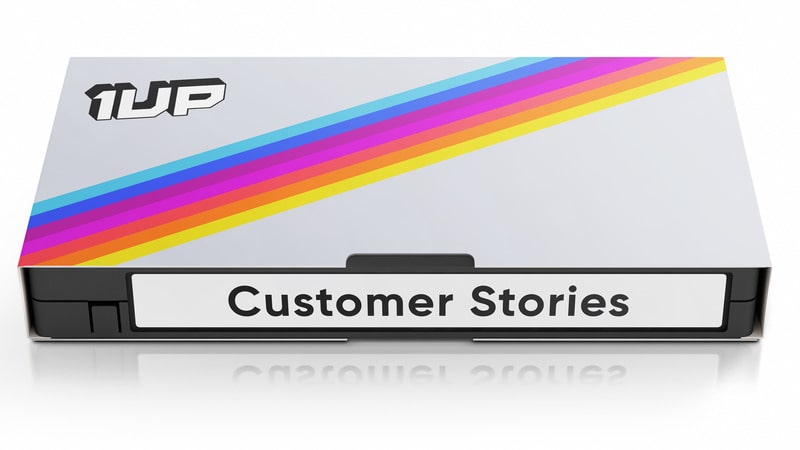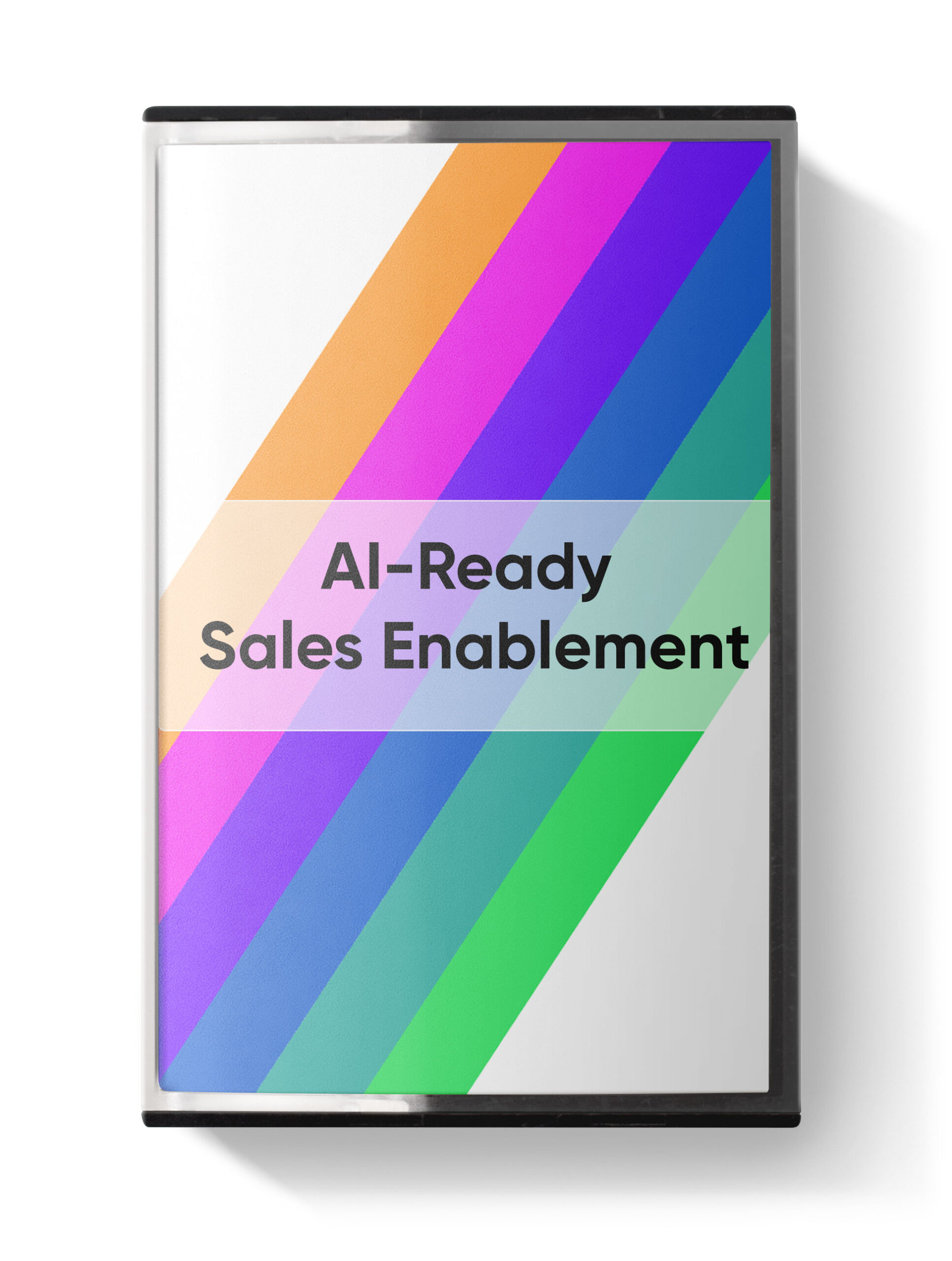If you work in RevOps, you’re likely tasked with making sure sales, marketing, and customer success teams can collaborate, make data-driven decisions, and respond to customer behavior.
Oh, and of course, you’re constantly navigating massive amounts of data and expectations from ever more savvy buyers?
Suddenly, AI shows up and now you’re hearing an endless stream of pitches about how it’s going to completely change your life. And the truth is that this hype seems exhausting and doesn’t really live up to the expectations 80% of the time.
BUT – artificial intelligence is not just an add-on in RevOps anymore.
It’s the essential tool for scaling revenue teams.
It can help your teams score leads, forecast pipelines, and optimize sales conversions, among other things.
In this post, we’ll look at the top 9 use cases where AI delivers immediate and measurable impact in Revenue Operations.
Key Takeaways
- AI can assist RevOps by automating manual processes and offering insights much more rapidly than humans can ever hope to.
- AI doesn’t replace your team members, but it does serve as an assistant to revenue teams with intelligent systems to make everyone faster and smarter.
- When you identify which use cases will deliver quick wins for your teams, you have begun to master AI in RevOps.
1. Automated Lead Scoring
The Problem: Traditionally, lead scoring systems rely on static rules and outdated assumptions. This means your reps are wasting a ton of time chasing low-value. Or they’re missing high-intent buyers.
The AI Advantage: An AI model can automatically prioritize your leads based on historical conversion data and real-time engagement. It will also pay attention to behavioral signals. These models will continuously learn from outcomes so they can improve scoring accuracy over time.
For example, if a lead starts to engage on a deeper level with your product documentation or if they start attending your webinars, their score will adjust accordingly. This score will reflect their growing interest and potential intentions.
Tools:
- MadKudu: Offers behavior-based lead scoring tailored to marketing and product-led growth motions.
- 6sense: Uses intent signals and firmographic data to prioritize leads ready to engage with sales.
2. Competitive Intelligence at Scale
The Problem: GTM teams frequently find themselves caught unaware when a competitor launches new features or adjusts their messaging. With traditional competitive intel, you’re dealing with a manual, static process that becomes outdated fast. So when a customer drops their prices, you’re sitting in the dark, not competing at all.
The AI Advantage: AI can now track your competitors’ websites, press releases, pricing pages, and more. So your team can get real, actionable insights, fast. RevOps leaders can then update their battlecards instantly and let GTM teams know about shifts that matter to their goals.
This rapid feedback loop empowers your sales and marketing teams to adapt quickly. No more sitting in the dark or lagging behind.

Tools:
- Crayon automatically tracks things like website changes, ads, news, and job posts from your competitors.
- 1up connects directly to your most up-to-date competitive battlecards and enables reps to answer competitive questions instantly on our platform, on Slack, or even on your browser.
3. Predictive Forecasting
The Problem: Sales forecasts are notoriously inaccurate. You’re dealing with human biases, outdated CRM data, and the unpredictability of pipelines, to mention just a few. So you’re missing targets right and left.
The AI Advantage: Predictive forecasting tools will analyze historical pipeline trends, deal progression rates, win/loss reasons, and more. So your teams will get forecasts backed by real data that adjusts in real time. These models will help you allocate your resources across marketing, sales, and customer success.

Tools:
- Clari: Offers AI-powered forecasting with pipeline inspection and deal risk analysis.
- BoostUp.ai: Provides revenue forecasts by integrating CRM data, emails, calendar activity, and call sentiment.
4. Intelligent Account Prioritization
The Problem: Reps will waste a ton of time chasing accounts that have low conversion potential because it feels like “work.” Meanwhile, they’re missing out on opportunities with a much better fit.
The AI Advantage: AI analyzes firmographics, past engagement, technographics, and buying signals. These will help your reps identify the highest-priority accounts. These insights will then help your sales and marketing teams focus their outreach where it can actually make a measurable difference. They’ll be increasing win rates and avoiding wasted effort.
Bonus: Some AI tools, like 6Sense, will even re-rank target accounts each week based on new behavioral data or external market shifts.

5. Conversation Intelligence
The Problem: Revenue Teams struggle to gain any insight from thousands of sales calls and meetings. They still take manual notes, which is unreliable. Then, any opportunity for coaching flies under the radar, unnoticed and unused.
The AI Advantage: Conversation intelligence platforms will transcribe, summarize, and analyze sales calls in real time. Then, they’ll identify objection patterns, track competitor mentions, and even suggest cues for coaching. This helps managers and reps optimize their performance.

Tool Highlight:
- Chorus.ai: Offers call recording, transcription, and AI-driven insights to help managers coach reps more effectively.
- Avoma: Provides AI-powered meeting summaries, action items, and coaching recommendations that integrate directly with your CRM.
- Gong: With Gong, you can get automatic transcriptions from all your sales calls right after your call, so you don’t have to manually take notes again.
6. AI-Powered Sales Enablement
The Problem: Sales reps waste tons of valuable time looking for answers to common questions. These include questions about product functionality, pricing models, and even support policies.
The AI Advantage: AI-powered assistants provide self-service access to accurate, context-aware answers pulled directly from your internal knowledge base. This cuts way down on the burden placed on sales enablement and product marketing teams. And it speeds the sales cycle way up.
Tool Highlight:
- 1up delivers real-time, AI-curated answers to any question from your company’s internal documents, battlecards, and training materials. This helps your teams work faster and smarter.
- Guru: Acts as a central, searchable knowledge base that surfaces verified information for sales teams right when they need it.
7. Content Personalization at Scale
The Problem: One-size-fits-all messaging doesn’t work anymore. Personalization is now the name of the game. Reps should now be looking at personas, industries, and buying stages, but finding that data is time-consuming and hard to scale.
The AI Advantage: AI tools will generate or adapt messaging for your specific audience. The AI will use your CRM data, firmographics, and behavioral insights to suggest the best content. It will also identify the right stage of the buyer journey, so you can improve your engagement and speed up conversions.

Tool Examples:
- PathFactory: Uses AI to recommend content tailored to the buyer’s stage and industry.
- Mutiny: Delivers personalized website experiences for different target segments using AI-driven rules and experiments.
8. Deal Risk Detection
The Problem: Reps are overly optimistic, and managers typically don’t have the visibility to see which deals are about to stall or fall through.
The AI Advantage: AI models will flag at-risk deals by analyzing email sentiment, frequency of engagement, lags in response times, and behavioral patterns. This proactive insight will help your teams intervene earlier, so they can improve their accuracy and their win rates.

Tool Examples:
- People.ai: Uses activity tracking and behavioral analysis to identify deal risk and suggest next best actions.
- Gong: Flags deals at risk based on lack of stakeholder engagement, missed follow-ups, or negative sentiment.
9. Pipeline Hygiene and Automation
The Problem: CRMS are notoriously cluttered with outdated, missing, or inconsistent data. This, of course, will undermine your reporting and forecasting, not to mention the productivity of your reps.
The AI Advantage: AI will automatically detect and fix any CRM data issues and then flag stale opportunities for your reps to review. It will even alert your reps to update any missing fields. In some cases, you can even find tools that will auto-fill fields using email and meeting data. This helps you cut down on manual data entry and improve the reliability of your CRM.

Tool Examples:
- Scratchpad: Helps reps update pipeline fields with minimal friction and automates hygiene tasks.
- Ebsta: Scores pipeline health and alerts RevOps to deals missing key activities or signals.
Making AI Work for RevOps
AI is now the backbone of every RevOps motion.
Of course, embracing AI doesn’t mean replacing your people. It means giving your people superpowers.
The best teams will pair human judgment with machine precision. They’ll use AI for powerful insights. And they’ll reduce friction from daily workflows.
Note: If you’re just starting out with AI tools, don’t try to aim for perfection. Choose one or two of the use cases above that align best with your most critical pain points.
For you, that might mean better forecasting, cleaner pipeline data, or faster sales enablement.
Whatever the case, start small, measure impact, and scale as you move forward and make progress.

Get the Big Guide to Revenue Operations
We built this revenue operations guide to help you excel at the role.



 Instagram
Instagram 












